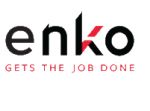There are a lot of articles giving small businesses advice on what they should do, so we thought it would be helpful to provide some tips to small businesses on mistakes to avoid. To that end, we have asked our insightful CarolRoth.com contributor network of business owners, experts, advisors and entrepreneurs to share what they think is the biggest mistake that small businesses make. Their answers are presented below in no particular order.
You may notice some similar ideas listed, but I kept them separate, as something in the way one is framed may resonate differently with you.

1. Capital Is King!
A big mistake businesses make is not having the capital to make it past startup. The Small Business Administration guarantees large portions of loans to entrepreneurs with credit challenges. Our backing makes these loans more attractive to risk-averse small businesses lenders. We seek to increase access to capital through specialized lending programs, microloans & surety bonds, and also include federal procurement assistance, management training, and outreach to women, minorities and veterans.

2. Plan Your Profit From Day One
A crucial thing that I see many new startups missing is a strong understanding of financial planning/forecasting, cash flow, and how to be profitable from day one. Entrepreneurs often fall in love with their idea without having any real clue about how to monetize it or understanding the economics of what it takes to build a business. Figuring out how you can get (and stay) profitable as soon as possible is an incredibly competitive advantage that'll allow you to control your startup’s destiny.

3. Zip Your Lip
You want the world to know how great you and your offer are, but zipping your lip and listening to your prospects will lead to more closed sales than telling them how great you are. Listen and occasionally ask questions that get them to speak more, so you know what is really important to them. Know their agenda, and then speak so you can address their needs appropriately. It's one of the best sales tactics ever.

4. Strategy Over Tactics Always
One of the biggest mistakes I see is business owners not being strategic with their marketing. They have a great idea for a product or service. They know their stuff. They can sell. But, they have no idea of how they will get their message out to the marketplace in order to make the SALE.
Today, people do not just flock to a product or service... they are busy. Having their attention is the greatest asset to have. But, how you do that is the key to success.

5. Build Your Businesses Credit!
In my opinion and observation, I feel part of the reason 30% of businesses fail within the first 3 years is because of lack of proper funding. Most banks will not trust a new business owner with a loan unless they have collateral to back it up. Yet, when starting a new venture, most people put most of their money into trying to develop something profitable. Many times, they use their own personal credit to do so, which in turn puts them more into a debt that they are personally liable for.

6. Overconfidence = Shipwrecked
Overconfidence bias is one of the decision-making biases that becomes the main cause of the fall of small businesses. Small business has few people for thought processes, decision making and therefore, the leader is making choices solely on the basis of his/her own perceptions and without the consent of his/her employees. Since the business is still new, the leader has not yet developed a trust in his/her own workforce, and this becomes the main cause of the fall of most of the small businesses.

7. Hats Off!
As a founder, you start a business on a shoestring and try to run lean. One of the detriments of a "lean startup" can be the theory that you can't afford to spend money; therefore, you wear too many hats. This can lead to burnout, stunted growth, and poor results. Outsource what you don't do well. Lean startups invest in their businesses. Take the hats off and hire out your weaknesses. This allows you to perform at an optimal level with what you do well.

8. Don't Forget the Follow-up
Being in business for 19 years, one mistake I see small business owners make is not following up or perceiving silence as a lack of interest. In many cases, it has required several outreach efforts and various touchpoints to convert a prospect into a client. Also, it doesn’t happen overnight—it could take months (or years)—which is why I share a steady stream of content with prospects. I also use a CRM for tracking leads and follow-ups and have an ABM (“always be marketing”) mindset.

9. The Time and Money Trap
Don't underestimate the time and money needed to bring your idea to market.
There’s an old saying, “Assume it will take twice as long and cost twice as much to get started as you think.” This may not be empirical evidence, but it is good advice. You need to plan for the inevitable speed bumps you will encounter along the way.
Thanks to: George and Mary-Lynn - Co-Founders of
BIGG Success.

10. Not Making Enough Sales Calls
Some of the biggest mistakes that small businesses make are not making enough sales calls and not spending enough on advertising. How many sales calls did you make today? How many potential new clients are in the pipeline? How much are you spending on advertising? How are you spending it and how are the results? What is your competition doing, and how are they spending their advertising? And, how should you change your advertising, marketing and sales activities? Give me a call and let's talk!

11. What's the Point... (of View)?
Failing to sharpen your perspective-taking ability as your company is growing is fatal.
Whether you are negotiating terms of payment with a new vendor or salary with a new hire, remember "to argue like you're right but listen like you're wrong." - Daniel Pink
Don't think you're smartest person in the room because you've just proven you're not.
So, as a small business owner, consider multiple perspectives when you are about to make decisions that impact your business.

12. Learn to Say NO!
A common mistake many small businesses make when growing is taking on every piece of work that comes their way. This can be a recipe for disaster if you don't learn to value your finite time and resources, as it can impede your ability to scale up. As such, learning to turn down jobs and say no is an important part of growing your small business. Have the confidence in your brand and skill set to be able to turn down the wrong kind of opportunities.

13. Let Your Talent Play, Too!
So many small businesses are led by a single founder or a small group of entrepreneurs. They proceed to hire the best talent they can find, but then they put handcuffs on them and tell them what to do, rather than inviting them to participate in strategy meetings and the idea creation process, utilizing their experience and creativity. My advice to most small business leaders is to listen more to the people they've hired and trained, and appreciate their contributions so they'll stay.

14. Not Knowing Your Brand Story
Too many people, whether they are just starting out in business or have been in business a decade, do not understand how to tell their brand story. Why did you start your company? Where are you now & what are the challenges you overcame to get to where you are today? What makes you different? What specifically do you do differently from your competition? Who are your customers & why should they care about you? Most importantly, where are you going? Your story matters! People want to know!

15. Thinking Friendships = Sales
Whenever we think to start a business, we usually ask our friends for their opinion. They'll generally be polite, offer a little advice, and be supportive because they are, after all, your friends. The reality is that once you start the business, you cannot rely on these friends to become customers. If you do, you will certainly fail and, more likely, become resentful that they aren't showing their social support with financial support. If they do buy, consider it icing on the cake.

16. Wrong Business Model
Many small businesses are guilty of this. It is the biggest mistake small businesses make. Some of them don’t have a well detailed plan on which products or services to offer, the main customers to target, how the much-needed revenue would be generated and a sustainable financial plan. This has made some small businesses go moribund.

17. Wrong Place Wrong Time
Small businesses often mistakenly put the right person in the wrong place or hire them at the wrong time. As a small business evolves and grows, different skill sets are need for different positions. When you are just getting started, you need hard-working generalists to fill in the cracks and get done whatever is needed. As the small business grows and matures, you need special skill sets for different positions. Too often, small business hire a generalist when they need a specialist or vice versa.

18. Infatuation Rarely Works Out
People choose to start a business for the wrong reasons, many times. That bakery owner with the awesome croissants is a fantastic baker. But, he didn't realize that having great pastry is only 50 percent of what makes a bakery great. The business also needs great staff and ways to keep them. Effective marketing and great PR is paramount. Who knew that google reviews would be a driver of business? Before starting a business, understand the business. It's not only about the deliverables.

19. Why Most Businesses Won't Grow
ONE biggest mistake most small businesses make - they focus on the wrong thing. They are obsessed with traffic and the latest traffic gimmick. That doesn't work, so they try the next and the next and the next. STOP the madness. To grow, you need a selling system. You need a system to get leads, convert leads and then, fulfill them. Develop those systems and you can grow to whatever level you want and the market will support. Don't do it and you'll become a statistic.

20. Misunderstanding Finances
The biggest mistake I see in business is a lack of knowledge in accounting and finances. Business is built on understanding finances, accounting, profit and loss statements, and cash flow. A new business owner must dedicate time and energy to understand these concepts in order to start their business on the right financial foot.

21. Not Seeking Market Validation
One of the top mistakes I see small business owners make is that they forget to seek market validation before they start their business. They don't ask those in the audience they're targeting if they'd buy the product or service the company will offer. Ask this question and accept honest feedback, then adjust your business plan accordingly. Constructive criticism is one of the most valuable things a prospective small business owner should take advantage of.

22. Bad Execution
Many people have good business ideas- the difficulty comes in when it's time to execute the business plan. A lot goes into a business plan; marketing, sales, management, engineering, manufacturing, etc. No matter what your business plan is, always make sure you have taken your time and explored every angle of your plan before you jump into your business. Make sure you understand every point and have considered all angles before execution. Slow and steady wins the race!

23. Running Out of Money
I often see business owners forgetting to keep their expenses as low as possible when they first start out. Before too long, these businesses run out of money before they've gotten off the ground. Maybe the business owner misjudged the time frame they needed to get things booming. In any case, you must be frugal in both your business and your personal life to give your new company the time it needs to flourish.

24. The Small Business Hat Rack
We all wear many hats but some don't fit well. We know our product or service, we know how to make it work - but we aren't experts in everything - accounting, marketing, or maybe HR. We dread those hats, so we look to our friends/neighbors for unsuspecting volunteers and quickly enlist them - until the quality begins to suffer, the culture is poor, the growth too fast. Now, we have to focus on those ill-fitting hats - instead of our passion. We don't plan - basically we need to plan our hat rack!

25. Believing in Overnight Success
Overnight success usually takes 10 to 20 years to achieve. If you go in expecting to be rich overnight, you may become discouraged early on and give up on your dream. Know that success takes time and perseverance. Give your business time to grow. Only if your company is stagnant for a long time should you take it as an indication that you need to try something new.

26. Not Putting Enough Time In
The biggest mistake I see business owners make is that they don't put in enough time or effort. A business, whether it be an online or a brick-and-mortar business, needs dedicated time and consistency to take off. Consistency means you work on improving your business every hour you're working. Time means being willing to put years of work into your business. Be willing and able to put this energy into your business and it will go far!

27. Forgetting Customers
There seems to be an infinite number of tasks and goals to focus on when running a small business. There are dashboards to keep track of, inventory to stock, payroll to balance, and the list goes on. Unfortunately, sometimes the customer is forgotten. Customers are THE most important part of a business. They are what keep you in business. If you don't consider their needs and their satisfaction as your primary goal, you'll lose them. Remember to meet their needs and treat them as individuals.

28. Ad Campaign Like You Mean It
It's easy to get caught up in the business side of the business. Chances are, that's what you're passionate about or what your goals center around. But, marketing that business is how you're going to make it work. If you aren't coming up with a clever ad campaign, you're not doing all you can. But, don't just think of a clever ad campaign for today. You need one that can be revamped for tomorrow and the day after. When people get tired of seeing your ad, you'll already have another lined up.

29. Social Good is NOT an Add-On!
I see so many business owners thinking social responsibility is something they can patch in later. They should turn that around. Social responsibility defines mission, builds audience/fans/customers, attracts media, and helps you sleep at night. Build in profitable products and services that make a difference on hunger, poverty, war, climate change, etc. The good news? It's a lot easier than it sounds.

30. Top Business Killer: Overhead
Many people want to create a big fancy image and take on a big fancy overhead... offices, employees, etc. The number one reason for failure is excessive overhead. It's not what you make... it's what you keep! I run our whole business from a home office and outsource 99% of what I do. Film crews come to the house. We get worldwide PR including The Tonight Show, Entertainment Weekly, etc. It allowed us to become the best in our industry. Keep overhead low to survive today's economic uncertainties.

31. Seriously-Optimize What Ya Got
Every business grows 3 ways:
1) Getting traffic
2) Activating that traffic into leads and next a customer
3) Delighting the customer
Now, where most businesses go wrong is they always look for new ways to get traffic.
New traffic is great, but what you should do first is optimize what you're already getting and encouraging virility to happen at each growth point.
When you focus on how to get virility with traffic, leads & existing customers... growth explodes!

32. Holding Good Thoughts is Bad
Although this sounds negative, the biggest mistake entrepreneurs make is having optimism.
As a social media marketer, I was too optimistic.
First, I thought I could get people to buy my blogging courses without paying a dime for ads. This organic marketing on Instagram got me nowhere, although my ads were creative.
On Facebook, I paid for ads that weren't targeted enough. I was too hopeful that I didn't need to narrow my focus and I earned nothing. I lost the ad money.

33. Getting Your Spouse on Board
If you are married and intend to start a small business, you need to get your spouse to support you all the way.
Your spouse is the one who supports you mentally and emotionally. I have seen and heard from some entrepreneurs' spouses were not supportive of the business. It's due to insecurity, lack of family time, and financial issues.
When you can solve those issues, you will still need to convince your spouse to be on board with you.

34. Stop Thinking Small
The biggest mistake we small businesses make is thinking small. Because we're small does not mean we have to think small. We MUST focus on leadership, systems, processes and hiring a great team. Too many of us focus on the day to day details of our business like "Tweeting" instead of growth minded activities and actions.

35. Not Fixing the Last Mistake
The biggest mistake small businesses make all the time is NOT correcting their previous flaws and still moving ahead to commit another mistake.
Then, the problems all get layered on top of each other, creating even bigger issues. Or, it's just like the feeling of running around in circles or a treadmill, and not moving forward because you keep repeating same mistake over and over again.

36. Not Learning to Say 'No'
I’ve seen many business owners, myself included, make a mistake that takes years to understand.
That mistake is trying to please everyone and saying yes to every opportunity that comes along. In business circles, this can really impact the productivity of a business owner and therefore, the bottom line.
When we stop saying yes, things change. Businesses can make more money, keep people happy, and an owner can forge a stronger bond with the team, as they are seen as a better leader.

37. Save for a Rainy Day
One blunder I see small businesses make is they just do not put money aside for when conditions are tough. I meet lots of business owners who one month tell me everything is going great and they are hiring staff. Four weeks later things are terrible and they may have to let someone go! This type of 'yo-yo' destructive, short-term thinking can be stopped dead if the business owner learns to budget properly and actually put some money aside for when market conditions are slow.

38. Oops, Shouldn't Have Done That
One of the greatest mistakes made by small businesses is spreading out their marketing budgets and attempts on several different marketing techniques, instead of focusing and mastering two or three. It is hard to build a believable brand when you aren't focusing your efforts and are wasting time and money on techniques that haven't proven to get your business in front of the consumer. Save your business time and valuable money, and focus your efforts on those avenues that have proven successful.

39. Incorporate Your Business
It is essential for a person that is a 'gig worker' to incorporate their business. A person can protect their personal assets by incorporating their small business for a small fee of typically less than $400. In the event of a lawsuit, the personal assets of the business owner are not put at risk if the business is properly incorporated. Shielding personal wealth by incorporating the small business is only prudent in today's litigious society.

40. Overlook an Effective Tactic
I think that one of the most significant mistakes that businesses make is that they tend to share ONLY their own content on social media channels. Distributing content from other businesses’ profiles as well can be an effective tactic. It comes with many advantages, such as building relationships with other companies in your niche, giving your readers even more content they are interested in, and varying the feed so that it is not all about you and your product or service.

41. The "Timesuck" Trap
The definition of a "timesuck" is simple. A person who schedules meeting after meeting, phone call after phone with zero intention of ever signing up for your products or services. This is an easy trap to fall into, especially if you are a new entrepreneur looking at a potentially shiny contract with all of the bells and whistles. Time is money, and your time should be compensated vs. waiting around while your potential client spins and spins.
My advice? Avoid the "timesuck" at all times.

42. No Customer Acquisition Plan
The biggest mistakes small businesses make is spending too much on “building” things and too little on marketing. They will happily spend thousands on getting a custom website when they could have gone with a $100 WordPress theme. Others might spend heavily on a fancy office or furniture. This leaves them with little or no money to invest on marketing. The biggest part of your startup capital or initial budget should go to marketing and customer acquisition.

43. Don't Forget Plan B and C
One of the biggest problems small businesses make is to fail to consider all the ways the business can possibly go wrong and establish a plan B (or C, or D). A business owner or entrepreneur must have a back-up plan for several possible scenarios: your product doesn't work the way it should; your customer base is not interested in your service; a global recession hits the day you go live, etc. This exercise will inevitably help you deal with the many smaller issues that will come up.

44. Learn to Say "No"
One mistake new businesses make is trying to be the right choice for everyone. When you first start your business, you will want to work with every client, and you’ll want everyone to like you and your work. The truth is, you won’t be the right person for everyone to hire and that’s ok! There are clients out there who will be perfect for you, and you’ll be perfect for them. But, it can’t be everyone. So, learn to say "no" if you know it won't be a good fit.

45. Choose Your Platform Carefully
We originally built our eCommerce website with Magento and were gearing up for our episode of Shark Tank to air. We knew that being featured on a highly viewed television show would attract quite a bit of website traffic. Leading up to the episode’s air date, we invested over $200,000 to make sure the site could handle the massive influx of traffic that would be coming our way. But when the episode aired, the site went down. We have since switched to Shopify, and have not had any issues.

46. Decision Paralysis
I’ve seen countless entrepreneurs and small business owners (myself included) let big opportunities pass them by, simply by not acting. Don’t worry if your business logo isn’t perfect, launch and fix it after! Don’t stress that your new product doesn’t have perfect packaging, sell it and change the packaging after! The key to success in any business is to be agile and focus on what’s important, listen to your gut and take action.

47. Biggest Mistake
The biggest mistake that small businesses make is continuing to invest in strategies that have failed. Take a business that invests a lot of resources into launching a new product. The new product doesn’t gain market share. Most business owners are tempted to keep sinking resources into the failed product to make it succeed, but this is a bad idea. We should cut our losses. When we throw resources into failed strategies, we take time and money away from the things that would make us money.

48. Creating Business Systems
The biggest mistake small business owners make is failing to create systems. A lack of thought out systems creates chaos for the owner, employees, and customers as well. The longer a business operates without the proper systems in place, the harder they are to implement down the road.
Wise small business owners avoid this crucial mistake and create a framework for the business to experience fluid growth at a much faster rate.

49. Don't Skip the Business Plan
Sit down and write an extremely thorough business plan. If you are working with partners, make sure they are involved in the process so you can all be on the same page. Clearly defining your market analysis, management structure, company description, and financial plan will help you tremendously in the long run. Your company values are also an essential aspect of this plan that you must outline as early as possible. Failure to plan is planning to fail!

50. Small Business Mistakes
The biggest mistake small businesses make is underpricing their service.
Most small business owners sell themselves too short. Because of this, they end up losing a lot of money in their business transactions.
Small businesses need to realize their own value and raise their prices to match the quality of their service.

51. Don't Call Yourself CEO
Don’t call yourself the CEO on your business cards if you’re a one-person show arriving at your own sales meetings and closing your own deals, especially if you’re young. If you’re meeting the owner of a local flower shop to try to convince them to spend $1000 a month on social media and SEO services, calling yourself a CEO doesn’t make sense. On the other hand, if your business card says sales, the flower shop owner is more likely to take you seriously. Kind of ironic isn’t it?

52. My Biggest Mistake Of 15 Years
As a business owner of more than 15 years, my biggest mistake was hiring cheaper people to do the job for me, as I wanted to save money. Search engine optimization (SEO) is a service that requires people that are fully aware of the Google policy to work on the website to make it rank higher in the Google search. I remember hiring someone because they would charge me only one third of the local companies. But, they did not have proper experience.

53. If It Exists, Build It Better
Inspiration strikes, and I come up with a new idea for a product. I am filled with excitement as I work on bringing my innovation to life. During the course of development, I discover that I've been beaten to market and the product already exists. I become discouraged, pull the plug, and move on. Therein lies the big mistake businesses should avoid. The correct response should be the opposite. The market for this product has already been proven, eliminating the big risk factor. Build it better.

54. The Problem With Overpromising
After working for startups in Silicon Slopes, I've noticed some patterns. The biggest mistake small businesses make is overpromising. All too often, business owners see the potential growth that a new client brings without fully considering the magnitude of what the client is asking. After all, it's easy to say "yes" and difficult to say "no." This mistake puts undue stress on your team, affects your reputation, and ultimately ends with an unhappy client and breach of contract.

55. Get Money BEFORE You Need It
The biggest blunder that we commonly see is waiting to seek funding until it is needed. It's unfortunate because it is usually avoidable. Access to working capital is vital. You are in the best negotiating position if you seek it before it’s needed. If there is gap between when bills are due and receiving payment, you can run into trouble quickly. In fact, 82% of small business fail due to cash flow issues. If you wait too long, your options are limited, and you are at the creditors’ mercy.

56. Remarketing
Remarketing is one thing a lot of small businesses don't do which is a great mistake. In the early days of my business, I paid less attention to it. I see a lot of small businesses making the same mistake now. They'd rather spend more time following up on products, shipments, and inventory than on leads, prospects, and clients, making them leave a lot of money on the table. There is a potential to double your sales with remarketing and I will strongly recommend this to all small businesses.

57. Don't Try to Do Everything
The biggest mistake I made was to try and do everything myself. When I started PetPedia, I was so excited about the idea and didn't think to split up the work and delegate it. This resulted in long nights trying to keep up with all the work that comes with running an online business. It was exhausting and after a few months, I decided to hire freelancers to handle the more tedious and time-consuming duties such as content writing, allowing me to focus more on the business side of things.

58. To Share or Not to Share?
Upon forming a corporation around my new product idea, I had a lawyer draw up a shareholders' agreement and promptly issued equal shares to two other people. I created a 3-way partnership of equals. That was, supposedly, my mistake. That is what I was told was my mistake— I should have retained control, had 51%. It was entirely within my purview to do so.

59. Forecast Your Way Into Success
We've all seen small businesses come and go and often wonder why some businesses succeed where others fail. There is no replacement for forecasting, anticipating and having a realistic idea of anticipated revenues and expenses. Having a great idea is a starting point, but really research the market and understand the investment and time needed to make your business a success. Keep your fixed costs low, i.e., share workspaces and network for vendors such as marketing, technology, etc.

60. Customer Journey
The biggest mistake I see small businesses make is not understanding their customer and customer journey. It's easy to make decisions based on ideal customers, but if you don't pay attention to your actual customers and work to understand them, you'll end up paying a high price. From your initial product offering to sales strategy to user experience on your website - in all areas, do your research!

61. Early Withdrawal
Early withdrawal is the reason why most businesses fail.
Early withdrawal is a result of the lack of relevant business experience, as many people underestimate how much a business needs money. It leads to undercapitalization. Soon after early withdrawal, they don’t have enough money in the bank to pay their bills when they became due for payment.
Not properly managing your cash flow kills a lot of companies.

62. No Cash = No Clue
The biggest mistake I see small business owners make is not managing their cash. They don’t track it on a weekly basis and they definitely don’t forecast it 3 months out. So, their cash swings wildly and they constantly scramble to keep up. They have no idea what impacts their cash and what they can do to lessen the impacts. The lack of forecasting exacerbates these issues.

63. Don't Waste Time & Money
Don't spend money on fancy brochures, letterhead, business cards, etc. until your business is launched. It's best to put your budget into things that help fill your pipeline with customers. Getting your URL & website up and running is key. Create online stationery for proposals and invoices, order cards online and make downloadable materials for people looking for more info. Find reference customers quickly, use them to get testimonials & referrals; there's plenty of time later to dress things up!

64. Negotiate with Vendors
Small businesses tend to overlook negotiating with vendors, whereas larger brands solicit and receive bids for all projects. SMBs often use vendors locally or whoever answers the phone first. This is a huge mistake causing many of us to spend more than necessary! Regardless of your size, make sure and get bids from multiple vendors. In addition, do not be afraid of reviewing these prices annually. If a vendor knows you're shopping around, they will most likely deliver a more competitive quote.

65. SEO Rules
The one big mistake small businesses make is Search Engine Optimization (SEO). You can have the most wonderful business in the world, but it won’t matter if nobody can find you. Your business web site needs proper SEO to get in front of your clients. I’ve seen several smaller businesses blow their competition away for no other reason than great placement in the search engines.

66. Waiting Too Long to Launch!
The biggest mistake I see small businesses make is waiting too long to launch. They want everything to be just perfect, but how can they know what "perfect" is in the eyes of the market?
In most cases, it is better launching with the minimum viable product to start testing theories and learning from the market, evolving and pivoting where necessary.
As Reid Hoffman, the founder of Linkedin, says "If you are not embarrassed by the first version of your product, you've launched too late."

67. Product-market Fit Is Key
As an entrepreneur and angel investor, I would say that the biggest mistake startups and SMEs make is not paying enough attention to product-market fit. Usually, most of the budget is spent on marketing and sales, not customer retention. Instead of analyzing what is the root cause of a high churn rate, many small businesses invest even more in sales and marketing, thus creating the so-called ''leaky bucket effect'' which results in running out of cash early on.

68. Outsource Menial Tasks ASAP
When you start out building a business, you do everything. For websites, it's coding, formatting, design and social media, etc.
It’s ok to do these tasks when starting out. It saves money and helps you to understand how much work is involved and how to do it.
The problem is that this kind of work can suck your time massively. Start reinvesting profits into paying other people to do these tasks for you ASAP. Then, you can really grow your business.

69. The Desire to Chase Success
Entrepreneurs have a passion and a desire to chase success. And sometimes, it can be done out of time or without proper planning. One of the biggest mistakes that we can have, and that I've experienced, is not having a strategic plan and not having a backup plan. In our effort to release our ideas, we often just believe that it will work and that everyone will jump on board to support it. But, just as the alphabet has more than one letter, we have to have more than one plan.

70. Have an Exit Strategy
The #1 mistake business owners make is not preparing for an exit from their company. First and foremost, have the awareness that you’re going to exit at some point. There are few owners that stay in their business for 20-30 years. If you have the awareness, you will treat your business as an asset and make decisions very differently. An example of this is building an assignment clause into your lease. When you build a company to sell, it will be more valuable as an asset in the long term.

71. Thinking Small is Deadly
Thinking small is the biggest mistake small businesses make. Why? The word small is a subconsciously limiting belief in itself. A small business owner can believe that they contribute a small impact on their employees, customers, and community. Second, small often means little effort to innovate unique solutions to solve customer problems and consider future expansions. Going bigger would be a headache or an unknown. And, they say a "known devil is better than an unknown angel".

72. Not Investing in Marketing
I think the biggest mistake that small businesses make is not investing in marketing and SEO early in their life cycle. A lot of small businesses think that just having a good product or service will bring in new leads and customers. However, this certainly is not the case, as a robust marketing and SEO strategy is generally required to capture the interest of potential customers. In short, many businesses fail to realize or properly invest in marketing themselves to a relevant audience.

73. Take Marketing More Seriously!
The biggest mistake I see small business owners make is not taking their marketing seriously enough. They often believe it exists somewhere on the fringes of operations when in fact, success is often achieved when a more integrated approach is taken. Furthermore, making assumptions about marketing such as just having a website is enough to get you found or is
enough to make Google aware of your business, can be a real killer. Lastly, I see many business owners who just throw money away.

74. Your Team is EVERYTHING!
As a trained architect, I had no idea what I was getting into building a business. After coming up with the idea, I walked around in circles for over a year trying to figure out how to build my business and 2 guys came on board to help me (I couldn't have made a worse choice of a team in my life). They both had the same skill set, are no longer involved in my business and they own nearly 20% equity. If I'd known what I know now... Team is EVERYTHING.
Thanks to: Lori Cheek of
Cheekd.

75. The Biggest Business Mistake
The biggest mistake small businesses make is focusing on things that don't matter instead of putting most of their effort into actually getting some money in and getting clients. Obsessing over the company name, business card designs, your logo and your website design does not bring money in. Sales does.

76. Got Cash?
The biggest mistake I’ve personally made and seen others make, is not having enough cash to take advantage of financial down turns in the economy. Your business may do great when the economy is flourishing, but do you have financial reserves to survive an economic downturn? More importantly, do you have the financial reserves to take advantage of an economic downturn? The biggest opportunities for expansion often come when your competitors are failing because of the economy.

77. Not Focusing On Productivity
In my opinion, the biggest mistake small businesses make is not focusing on productivity. As they become bigger, they must become more efficient in order to serve more people and compete in the marketplace. Without a continuous focus on productivity, they will become inefficient and lose market share.

78. Ask, Is There an ROI?
We often see small business owners without specific growth goals in place. As a result, what we find is that their marketing efforts are about throwing everything they can at the world and hoping something sticks. Without clear goals, it is really difficult to succeed and also to determine the return on investment of your efforts. This sees marketing budgets squandered on channels that don't contribute to growth. Every dollar counts in business, but more so in small business, so be strategic.

79. Listen to Your Audience!
One of the biggest mistakes business owners make is they make website/product changes that they think customers want, with no data to back up their decision. Consequently, when users hear about the update, they are less than enthusiastic. If you want to grow your small business, you should always review your customer feedback forms as well as your website, social media, and email analytics. Looking for common trends (Ex: feature requests, complaints) can help you make data-driven decisions.

80. Complacent Invincibility
An entrepreneur has success and takes their foot off the gas pedal, gets comfortable and thinks that they are on cruise control. They don't play in the dirt anymore and spend time daydreaming while they get passed by. A cavalier attitude motivated by an unchecked ego will get them off course if no one is manning the helm. You reap what you sow and to alleviate that mindset, you must spend your time with people that want to win. Take risks, face challenges and cultivate a culture of excellence.

81. Communication is Key
I’ve found that communication is absolutely key - and not recognizing its importance from the get-go was a mistake on my part.
I run a board game website with a small team and we work on the site from different parts of the world.
As you might imagine, anything that can take out a website with a team in several time zones can be a brutal blow. Being transparent about communication and having everyone know exactly what’s happening at all times is extremely crucial.

82. Stick to Simple, Clear Plans
Without a doubt, not having clarity is one of the biggest mistakes any small business is going to have. This is clarity both in their actual business plan and also in their marketing plan. Know what it is that you do and who it is you do it for.
It sounds easy, but as a commercial lawyer, I have seen time and time again, small business owners without a clear plan digging themselves deeper and deeper.

83. Not Using Automation Tools
We work in the retail domain, so we'll be able to answer specific to that.
One of the biggest mistakes we see smaller retailers make even today is to try and manually manage inventory when automation can save both time and money. There is simply no way to track inventory manually across channels and at all times of the day.
Systems instead of spreadsheets can help them forecast, buy and store only as much stock as they'd need, thus saving tons of working capital for other uses.

84. Ask Customers Feedback!
A big mistake small businesses can make is not asking their customers what they want. Sometimes, it's too convenient to build what you want without asking your customers what their pain points are. In the early days of running my business, I thought it would be cool for our customers to order products via a tablet. I ordered 15 tablets and not a single customer used them! They preferred their laptops and found the tablet too fiddly to work with. That could have been avoided with 1 conversation!

85. Don't Follow Your Passion
The biggest mistake I've made is to turn my passion into a business. I enjoyed working out and started an online business that focused on helping men build muscle. But, this niche has a lot of competition that already satisfies this need.
This is a problem that most small businesses face as they focus on their passion rather than satisfying a need in the marketplace. The first step before starting a business is to listen to people, figure out their problems and then, create a solution for them.

86. Testing the Idea
The biggest mistake that small businesses make is not testing their idea on a small target market before scaling. They don’t test for product-market fit and instead create something that they think would sell well. As a result, their business ideas are not grounded in the real needs of their target audience. They just make a guess about something that may succeed, which is why most startups fail - they start from ideas, not needs and pain points.

87. Yin, Yang & the Space Between
Yin is the trough of the wave that starts/sustains a new business. Yang: the peak, the growth, the passion. Before moving to the crest, the small business-owner needs to be prepared. The wave of a business trend may soon disappear, so leaving your investment in it worthless. Research will help you decide if and perhaps when to make that investment. And, when you are ready to implement your well-researched idea, you need to be sure, once again, that you are prepared to handle the business it brings.
Thanks to: Marlene Caroselli.

88. Don't Go Alone!
The biggest mistake I made is that I shouldn't have tried to do everything myself. Instead, I should have handed the work to someone skilled in that area. Yes, there may have been an additional cost at first, but the job would have been completed efficiently without having to juggle multiple hats to achieve the goal. Delegating the task to the right person will free up your time, get you better results, and allow you to focus on bringing in new business.
Thanks to: Pete Callaghan of
Promoly.

89. Learn to Say No!
Young businesses in particular have a habit of saying yes to any opportunity that offers them money, but if your skills/services are not a good fit for the job, you'll build bad relationships and reputation. It's important to be selective, and say no to opportunities that aren't suitable. Profit for the sake of profit is not sustainable. Businesses should find a place within their market where they can achieve success for both themselves and their customers.

90. Being Too Hands On/Controlling
It can be difficult to allow others to take control of part of your business, but as your company grows, you will have to delegate tasks to someone else. You simply can’t do everything yourself; if you try to, you will become overworked and your focus will begin to slip, damaging the standard of your work. Plus, freelancers and employees will be able to provide you with specialist skills which you may lack, improving your business’ capabilities as a result.

91. Not Celebrating
Too many small business owners forget that running their own business should be a labor of love; if you don’t stop to enjoy the big wins, you could lose the pleasure of running your business and may find yourself losing motivation. Whether it be landing a big contract or an R&D breakthrough, these achievements are what you work towards, so you need to relish them. Plus, big wins don’t happen too often, so it’s important that you celebrate them when they do occur.

92. Don't Under Value Your Staff
One of the biggest mistakes that you can make as a business owner is to undervalue staff. After working in a small business for a while, people came and went very quickly and it crumbled the business. Due to the nature of a small company, each staff member will have a number of roles and when one person leaves, the pressure of the rest on the business increases massively. So, caring about the staff, valuing their input and allowing them to progress is one of the biggest parts of success.

93. Don't Expand Too Fast!
I’ve seen many small businesses fail due to over-hiring. When you start to grow, it can be tempting to create as large a team as you can afford. However, it can be dangerous to increase your expenditure too early on in your business life, not to mention hiring without really knowing what you’re looking for. I believe in quality over quantity and would recommend that small businesses in their early stages cultivate a solid, dependable team, and use trusted freelancers to fill in the gaps.

94. Not Valuing Their Workforce
A common mistake that small businesses make is when they consciously or unconsciously devalue and underplay their workforce’s health. Some entrepreneurs are too focused on meeting goals and gaining profit that they tend to abuse their workforce by making them work ungodly hours and deprive them of a work environment that encourages growth and progress. If done continuously, numerous entrepreneurs will see themselves losing team members by the minute.

95. Work On the Business
All too often, the biggest mistake that small business leaders make is spending all their time working “in” the business leaving no time to work “on” the business. Consequently, the business efficiencies, processes and people don’t improve and growth becomes impossible, many times ending in a business failure. Always remember no matter how small or big your business is, carve out some time to make it better.

96. Don't Rush Your Success
The biggest mistake businesses make is attempting to rush their success. In reality, it takes time for that success to kick in — a lot of time. Entrepreneurs and business owners need to realize that the best success comes at a consistent pace — one step at a time. You can't give up too early if you don't see the results you're hoping for. If you had the ambition and confidence to start your business, gain the strength to keep pushing until you see the results you want.

97. Don't Get Distracted
One mistake business owners make is to not focus enough on their primary brand message. To have a successful business, you need to establish what your brand's focus is and not to let any outside noise distract you from getting there. Also, if you're not specific enough, you'll end up trying too many things, leading you away from your brand's mission and vision. Say no to all other distractions and focus on the one thing you set out to do.

98. Crumbling Under Competition
When businesses see more competition within their niche, many let the pressure of new players affect their ability to remain competitive. They worry about taking risks, in case they fail and fall behind these competitors. But, you can’t stay ahead if you’re just playing catch-up to your competitors’ latest moves. Now, more than ever, you need to be innovative in order to make an impact and stay on top.

99. Market or Die
There are several mistakes I see but if I'm limited to one fatal mistake, that mistake would be not investing enough in marketing.
In our business, "nothing happens until the phone rings". You could have a great business model, be financially and operational sound but if the phone doesn't ring, you go out of business.
Discover where your customers are looking for your services and invest in the marketing required to being found when they are looking for you!

100. You Can't Go Broke With Cash
According to the Small Business Association (SBA), 30% of businesses fail in their first 2 years and 50% within 5 years. One of the biggest mistakes small business owners make is they run out of cash. As a small business owner, you need to learn how to manage and maximize your cash flow. We recommend setting aside at least 10% (up to 30%) of your annualized revenue into a cash reserve account. Having cash is the key to preventing small things from becoming catastrophic for your business.

101. CEO at AILaw
The small business owners in the beginning often cannot manage productions according to the demand and supply, which is the biggest mistake. Most of the time, the production is planned haphazardly and much more than the demand of the market. Due to that, an adequate amount of investment has been trapped, and you have to sell the spare products with loss. Low production, according to the demand, is also a concerning issue and you need more products on an urgent basis.
Thanks to: Shiyang Gong of
AiLaw.

102. At the Speed Of the Customer
We live in an ideas economy; a powerful idea disrupts a decades old industry or a company. These ideas need companies, strategies, leaders and cultures to be at the speed of the customer. One of the biggest blunders and mistakes that many businesses make is not being “at the speed of the customer". This means that there is an opportunity for leaders of companies to drastically change the way they have always thought to create products and services and respond to customer expectations instead.

103. The Delegation Conundrum
Failing to delegate is one of the biggest mistakes small businesses can make. Once leaders hone their skills to become better communicators and learn to increase productivity, enhanced delegation skills naturally follow. The inability to delegate places a cap on your potential to be strategic. You will get stuck in a "tactical admin mode", eventually becoming the lid on your organization's growth. Delegation allows you to get out of your own way and focus on growing your business.
Thanks to: Tricia Sciortino of
BELAY.

104. Don't Just Fill Seats
The one biggest mistake I see small businesses make is not having a proper hiring and on-boarding process.
No matter the size of your company, turnover equates to time and money spent, which no small businesses can afford to
lose. Businesses need to stop just filling seats and make sure they get to know the candidate, their strengths and weaknesses and if they fit the company culture. Once they are hired, take the time to properly train them for success and the expectations of the job.

105. Focus On the Results
When I began our insurance agency in 2003, I was driven more on the mechanics of the work and less focused on the results that my team were producing. I lost a couple of the most talented people I’ve hired because I either came down too hard on them in one area while they were outshining fellow employees in other areas, or because I required them to do it “my way”. I’ve come to learn that you can have an effective team focused on the same goal despite some differences in execution.

106. Biggest Mistake - Purpose
Not building your business around your purpose and sharing it. When we're purpose-driven, we're more resilient to the challenges inherent in building a business because we have a reason to keep getting up and dusting ourselves off. A passionate sense of purpose is also infectious - all things being equal, prospects find meaning, substance, and purpose irresistible. Also, do ask for help, get a consultant or find a program that can provide you with the resources and skills you need to succeed.

107. You've Got to Ask
Not asking customers for recommendations. 70% of customers will leave a review, if asked— but you’ve got to ask. A great review is a gift that keeps on giving. You can feature them on your website, tack one onto blog posts, even include one in your email signature. Happy customers are your best brand advocates. Their testimonials inspire trust and credibility. They're telling others you keep your promises and deliver. Don’t make the mistake of not asking customers for recommendations.

108. Focus On Your Margins
A big mistake small businesses make is getting hyper-focused on revenue growth but not taking the time to monitor/track how that revenue funnels into their gross, operating and net margins. Having a pulse on these margins is essential to make informed business decisions. Setting a benchmark for your gross margin, operating and net margins, and tracking them across time can help diagnose business issues and get ahead of them, before they become bigger problems.

109. Don't Do Everything
The biggest mistake small businesses make is when they TRY TO DO EVERYTHING. There are key components to a business and you just can’t do it all alone. You need experts or appropriate people to support you in your goal and growth in the industry. Marketing and Business experts are needed to grow the business and its field, which is usually the goal of every small business.
Thanks to: Leonard Ang of
Enko.

110. Not Knowing Your Customer
The biggest mistake that small businesses can make is not fully understanding their customer. As a small business, you're fighting against competition whether you know it or not. The way you'll stand out is knowing your customers wants, needs, likes, dislikes, etc. better than anyone else in the space. Let the customers determine your business direction and you'll end up on top.
Thanks to: Sean Bair of
ZooWho.

111. Consider SEO When Branding
A big mistake new businesses regularly make is naming their business/brand something super unique and meaningful to them, but it conveys nothing to search engines. When opening a business, you have a clean slate - leverage that to your advantage! It's far better for your online visibility to name your brand clearly in relation to what you're offering and where, since the majority of leads come from online sources these days. If you do that, half the battle for online visibility is already done!

112. Don't Just Blindly Tag Along
The worst thing when starting a business you can do is trying to blindly copy your competitors. Presuming you've done your research and know exactly who you're competing with, looking harshly at your competitors' data will not provide you with a very clear insight of how to prioritize your strategy. Instead, try looking at your niche audience, monitor their behavior and interest and try adapting your USP accordingly, whilst boosting your brand awareness and identity in the process.
Thanks to: Joy Corkery of
Latana.

113. Not Value Your Employees
Successful business owners foster a company culture that prioritizes the customer first, company second, and the individual third. With that being said, the biggest mistake business owners can make is not to make all employees feel valued and know they’re part of an open and inclusive team. CEOs can create that team-oriented environment and nurture relationships by being proactively accessible. A CEO needs to be truly accessible to be a visionary and credible leader.

114. Balance Life and Work
Not having a proper balance of your work and personal life is the biggest mistake business owners make. Nobody’s a machine, and we need to first respect ourselves and understand our own needs in order to perform at our best. At the end of the day, if you're not happy, it's just not worth it. Always remember that any form of employment is temporary — paychecks don’t follow you around after the end of your life, so make the most of it now while maintaining professional responsibility.

115. Don't Blame Failures On Others
One mistake business owners can't afford to make is blaming their failures on others or external factors. If something hasn't gone as planned, instead of shedding blame, you need to find a way to fix that problem. Faults and errors are inevitable when running a business, but they won't ruin your business unless you let them. Even though it can be frustrating, embrace the issue and learn from it.
Thanks to: David DiNardo of
Envolta.

116. Get the Right People On
The biggest mistake that small businesses make is not getting the right people on the bus to accomplish all of the things needed in a business. The business owner(s) is just a small piece of the big picture when it comes to running a business. The true key to success, from my experience and reading about other great owners, is to find people who are smarter than you, more passionate than you about their work, and who are truly team players. Human capital is the most important asset in business.

117. Not Knowing Your Competition
Not knowing your competition is one of the biggest mistakes new entrepreneurs make. Sometimes, you need to compete against an established giant who has big buying power and great shipping rates. Other times, it’s a bunch of bad competitors who don’t know margins or make money. The race to the bottom is never a good thing; you want to avoid any space where that's the case. While it's harder to find spaces without much competition, it's important to keep looking for those new opportunities.

118. Work "On Your Business"
My biggest mistake was that I worked "in the business" rather than "on the business". As a small business, it’s equally important to focus on building systems and processes early on (even though broken). If not done, you will face challenges when you hire people and try to scale up. A small business can’t always afford exceptional people, but it can build exceptional systems/processes that can drive ordinary people to do extraordinary work, without the founder getting overwhelmed each time.

119. Don't Overbuild or Overspend
At our business, we have an idea called the "definition of done." Software developers are like other visionary builders, we dream of building something amazing and we tend to overbuild — a common, yet costly business mistake. To avoid this, we work together to define when a product should be completed and declared "done". This avoids overbuilding and overspending. Define your definition of done — focus on achieving the minimum viable level of done. It will simplify your work and life.
Thanks to: Greg Wood of
MASV.

120. Ignoring Process Documentation
A major mistake that small business owners make when handling their companies is when they disregard and neglect the proper way of documenting their implemented business processes. Businesses that practice and value business process documentation are smarter with the way they plan, prepare, and function within their companies and are less likely to make major business mistakes and faulty investments.

121. Bookkeeping, Back Not Forward
The number one mistake I see small business owners make is using bookkeeping for the sole purpose of looking back, not as a tool to look forward. Bookkeeping is the means to gain visibility into your finances, and your finances affect everything you do—your ability to get business later on, your ability to get loans, your ability to hire employees, etc. Bookkeeping has traditionally been about looking back and small business owners don’t have a lot of people on staff to look forward.
Thanks to: Trent Miskin of
Lendio.

122. Dull and Dreary Workplaces
Everyone excels at different things. Typically, you perform your best and you enjoy your work more when you are able to spend the majority of your time focusing on your areas of strength. The biggest mistake small businesses make is not doubling down on everyone's strengths. One sure fire way to create a dull and dreary workplace environment is to plug people into positions and departments that they weren't meant for.
Thanks to: Derek Perkins of
Nozzle.

123. Don't Be a Faceless Brand
One of the biggest mistakes that small businesses make is not being original. While the idea of, say, a sock store isn’t new, it’s important to take an idea and put your twist on it. In a world full of huge faceless corporations, the character and ideals you can infuse into a small business are what will help draw your customers in and keep them coming back.

124. Town Names, Not Phone #s
The definition of a US small business is a company with less than 500 employees. Probably the most common mistake is putting their telephone # on the side of their vehicles, instead of their town. No one writes down telephone #s, unless the vehicle tried to drive them into a ditch. If interested, customers get the town name and look up the #.

125. Lack of Effort
As a seasoned entrepreneur, the biggest mistake I see people do is going in half baked. Before you start a business, you must have a plan. You must have a basic understanding of how to do all aspects of the company. Once you start, you must continuously devote all your time and effort to make sure it grows. Never falter. Your focus and drive must be unwavering. One thing you can do to make sure you're able to do this regularly is to go into something that you're deeply passionate about.

126. We Aren't a Hacker's Target
The #1 mistake businesses make is assuming that a cyber attack will never happen to them because what they're using is safe already. The truth is that as long as you have a business, you are on hackers' radar and they are constantly looking for a way in. Staying on top of security practices is vital. Not preparing for a cyber threat can also leave your business vulnerable to legal actions and fines in some states. Don't wait for an attack to make changes. It costs more than you think.

127. Find Your Team & Community
The biggest mistake I see small business owners make is trying to do everything themselves. They try to manage their website, social media, bookkeeping and more, instead of hiring it out as soon as they can. They overlook the value of networking, being visible in their businesses, and the opportunity to form the friendships and community that will support them. Running a small business is hard, and small business owners need a support team of pros and a strong community to back them up.

128. Don't Make This One Mistake
Waiting too long to scale your business due to lack of funds. Bootstrapping is hard! It's not impossible to grow your business into a thriving one with just the money in the bank, but it can take a long time or never happen.
Seek funding, whether it's from investors, a bank, partnerships or grants; go and get it.
Easier said than done I know, but this will be a game-changer. It will give you the breathing room you need to grow. If you are not sure how to go about it, look for a mentor.

129. Don't Be a Start-Up Saboteur
One of the biggest mistakes that small businesses make is being driven by ego. It may be the one killer of entrepreneurs and startups. Most owners think people naturally care about their business and therefore, lose flexibility. Truth is, success is earned through trust and results. You have to remain coachable and adaptable with both investors and customers. Your way may not be the right way after all. Do you want to make money or do you want to be right? Sometimes, it’s not one in the same.

130. Small Businesses Aren't Small
In the US, if your company employs less than 500 people, it is considered small. And so, as of 2018, 99.9% of businesses are small businesses. SOURCE:
https://bit.ly/2T0yILD
That’s a huge chunk in the business industry and in something that big, mistakes are rampant. Yes, they might be classified as small, but the expenses, the hard work, the capital and sometimes even the income aren’t small. When you think of your business as literally small, you tend to underestimate it.

131. Not Using Digital Space Well
No matter how good your product is, you are always as good as you project yourself on social media. Initially, we were so focused on making our product stand out that we overlooked the importance of BRANDING. So, set the tone, share the joys/wins, flaunt your work culture, your USPs and put efforts to become a thought leader in your niche.
Don’t sit back, make your presence felt. Just like us, come out of your shell, think big and let the world know about your wonder!
Thanks to: Sukriti Saini of
HROne.

132. ERP- A Shield to Your Business
The biggest mistake small businesses make is not planning to invest in a robust ERP system, but relying on manual data entries to make critical business decisions. An ERP that is capable of rendering real-time data anytime anywhere with greater control and visibility across the entire business could be your key to embark upon the journey of success. And your powerful shield to avoid possible errors! So, invest in ERP to build a strong and error-free organization today!

133. Unrealistic Dreaming
It takes time, but consistency is a key to success. Small business owners are seen to be overly enthusiastic toward their goals. They desire to disrupt and dominate the market overnight – which is never gonna happen, mark my words! You have to run with your competition. You've got to go through the failure. That’s a journey of business. Keep up with it. Nothing could be counted as the biggest blunder more than day-dreaming for a businessperson. You have to keep your feet on the ground and move forward.

134. Big Ego
The biggest mistake small businesses make is being run by a big ego. Starting a small business is exciting — for many, it's their dream. But, don't confuse that unbridled optimism for what it is: a big ego. Letting that big ego make your business decisions is the biggest blunder because it leads to all the other common mistakes that kill small businesses: "There's enough work here for 3-4 employees or some outsourcing, but I know I can do it all because #hustle!" That's ego.

135. Underpricing Services/Product
It is an excellent strategy to keep your pricing low in the beginning. But, not too low that you end up diminishing the profit margin. Remember, businesses get bankrupt when they do not manage their finance effectively. Getting clients, either one or more with no profit margin, is not going to work for you. Instead of minimizing your profit, think to give the client a value to justify your prices. So, keep your prices not too high and not too small, but keep them moderate.

136. Marketing is Not Important
Small businesses usually feel that marketing is an unnecessary domain. They are more focused on production rather than its selling, and it is a mistake!
Getting hesitant in making a marketing budget and dedicating significant funds for marketing activities affects business growth and brand awareness, lead generation, and ultimately sales. It is also not always expensive. There are many free tools available online that a business can explore which can help you in marketing.

137. Not Protecting Their IP
Having a great idea is the easy part — seriously. Many small businesses think they don’t have any Intellectual Property to protect. But, this excuse doesn’t cut it.
100% of companies have IP; more importantly, that IP forms more than 90% of a small business’s value! According to the USPTO, annual IP theft totals $300 billion!
It is crucial not to let anyone claim a right to your IP. Small businesses that neglect the protection of intellectual property will suffer later.

138. Ignoring Social Proof's Power
Acquiring new customers is difficult and expensive, but wait! You can turn your existing customers into a sales weapon using social proof. This marketing concept says: potential customers trust your current customers much more than any marketing efforts put together.
Essentially, make sure that each happy customer leaves some kind of social proof (e.g. testimonial, review, star rating) for you. Once you have it, all you need is to promote it on your landing pages, home page and social media.

139. Don't Try to Boil the Ocean
Don’t try to “boil the ocean”. It’s natural for entrepreneurs to want to be the best at everything, but true leadership can include the self-awareness to step back, refocus, and look at the big picture. If you spend too much time trying to be everything, you’ll lose sight of your key customers and your core business. Refocusing on your core is usually a turnaround tactic, but proactive thought and focus can prevent you from ever finding yourself in that situation in the first place.

140. Biggest Mistakes
The biggest mistake I see when small businesses are starting out is the money they spend. Small businesses are so afraid of not getting the right start that they save money on things where they should spend and INVEST in themselves. Small businesses are taking shortcuts and are trying to get things cheaper, but at what cost? They end up with bad quality or a service that's not even close to the competition. So, I would say that's one of their biggest mistakes.
Quote: "Scared money don't make money."

141. Investing In Your Brand Health
Small businesses don’t invest in their brand well-being to avoid becoming a brand that they feel they have to make excuses for. For example, how many times have we heard small businesses say, "Well, it is just a starter website" or "This is still in development?" While first impressions aren't permanently devastating, they either start you with a surplus or a deficit. Incomplete brands don't get referred, closes less business, close business slower, and don't project confidence and success.

142. Slow Your Growth
The biggest mistake founders make is growing too fast. I was recently told by a private equity firm that they will not make an investment in a business that grew before they were ready.
Potential risks:
•Loss of Resources
•Damage to Brand
•Cannibalizing Yourself
What causes these risks and what can be done:
•Poor Processes
•Wrong Team
•Bad Location
•Wrong Partners
•Lack of Defined Goal
Taking a more thoughtful approach will benefit. Turtle beats hare...

143. Not Delegating Certain Tasks
The biggest mistake entrepreneurs make is trying to wear every hat. If business owners don’t delegate non-revenue generating tasks - those that require valuable time and resources, yield zero return and draw attention away from growth - they’re setting themselves up for failure. As soon as they get employees, most business owners should choose to outsource payroll. Outsourcing a non-core task like payroll will allow more time to focus on things like company vision, product, brand and more.

144. Understanding Online Lending
The #1 mistake that business owners make is taking alternative financing that they either don’t need or don’t understand. There are many options to borrow money and the money can be available in incredible speed. This all-too-often results in making hasty decisions without reviewing all the options. In order to maintain a healthy financial footing, SMBs need to take their time, do their research, ask questions, demand answers and determine they are receiving the best option available.

145. Invest In Experience
Whether it is the photography used on the company website or the interns without experience writing the social media copy or a lack of formal training for those interacting with the customers, small businesses stay small because they don't invest in experience. It's the hammer/nail analogy. You don't hire the carpenter because you need a hammer and nail, you hire him because you need to know the best place to use it.

146. No Control Over Digital Assets
Small business owners often do not grasp the nuances or best practices for managing their online presence, yet the internet continues to be important. This gap in knowledge could lead to the issue of not having control over all digital assets. Many platforms allow you to add additional users, so there is rarely a need to give carte blanche access. Your name must be listed as the account owner, so that admin credentials are easily accessible for you and out of reach for everyone else.

147. Don't Make Stupid Mistakes
I feel that one mistake businesses make is to forget who the customer is.
So often today, whether it's calling a company and trying to get through to an actual live person on the phone or getting a live person on the phone and asking for a specific person only to have them transfer you to a voicemail.
Companies that want to be truly successful will find a way to allow customers to communicate the way that they want to communicate.

148. The Key to Blog Success
The biggest mistake I see most small businesses make is underestimating the potential of optimized blog posts and high quality content. By implementing SEO on your blog posts, you are creating a source of organic visitors. It is crucial to share high value content that appeals to your ideal client. This will ensure they stay longer and check out more pages on your site. It is always key that your posts are focused on solving problems, helping your ideal customer and providing insight.
Also, if you would like to become a part of the CarolRoth.com contributor network and find out about opportunities to contribute to future articles, sign up here: http://www.carolroth.com/carolroth-com-blog-contributor-sign-up/
















































































































































